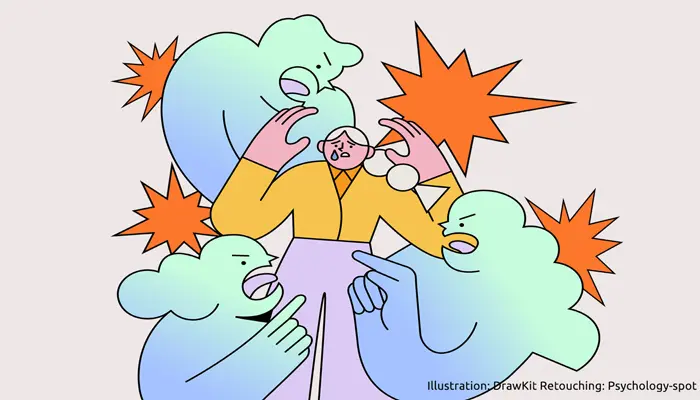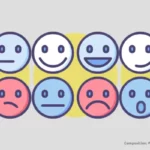
We have many fears. Maybe too many. Luckily, when life goes on normally we manage to keep them under control. They only appear from time to time as anxiety pangs that then subside. But when things go wrong, fears surface. And they don’t abandon us. They become persistent.
One of our greatest fears is fear of loss. With capital letters. The loss of people we love. Loss of stability, even if it is precarious. The loss of everything we’ve worked for years. The loss, in short, of what is known, that transmits security to us.
Now, without warning, the tragedy has brought us face to face with the possibility of that loss occurring in capital letters. It has thrown us fully into the liquid world that Zygmunt Bauman described. A world in which everything spins at breakneck speed and we have no handles to hold on to. A world in which we are forced to live daily, forgetting the assurances that comforted us yesterday, without being able to make plans because we do not know what tomorrow will be like.
In that world, the unthinkable has become routine. The pillars on which we had built our daily lives are vulnerable and we realize that they are much more fragile than we supposed. That discovery terrifies us because it confirms that there are no certainties or assurances that last a lifetime.
In fact, beyond the individual crumbling, we are terribly afraid to intuit the implosion of a system that we took for granted and that, despite its faults and defects, we considered solid. That fear that wobbles us is actually an old acquaintance and takes us back to the tragedy of the Titanic.
The message of the Titanic engraved in the collective unconscious
The history of the Titanic is imprinted in the collective memory. And not only for the loss of human lives, but for everything it represented and all the shadows it casts towards our future.
The iceberg represents dangers that remain hidden but that, at any moment, can come to the surface to hit us. However, while those dangers are hidden, “They are never at a greater distance than that of a surface layer of separation”, as Bauman noted.
However, what terrifies us most in the history of the Titanic is not the iceberg and the dangers that it represents, but “The chaos that occurred inside, on the decks and in the holds of that luxury ocean liner, such as: the absence of a plan for the evacuation and rescue of passengers that was sensible and viable in the event of sinking, or the pressing shortage of lifeboats and floats”, according to Bauman.
Because the White Star Line was “certain” that the ship was “unsinkable,” it only equipped it with 20 lifeboats, which barely served to evacuate a third of the passengers. The Titanic, however, had room for 74 boats. The crew were also not prepared to make an emergency evacuation. The sad end is already history.
The Titanic was a litmus test that exposed our unpredictability and vulnerability. It showed us that no matter how far we advance in technology and how sure we are of what we have built, the unthinkable stalks us to hit us when we least imagine taking advantage of the vulnerabilities that always exist.
That tragedy also caused the immediate breakdown of social norms that everyone took for granted, but that at the moment of truth were extremely fragile.
Thus, “Titanic is us, it is our triumphalist, self-indulgent, blind and hypocritical society, ruthless with its poors; a society in which everything is predicted except the means of prediction itself”, as Jacques Attali wrote.
Titanic Syndrome: The fear of losing everything unexpectedly
Remembering the Titanic tragedy brings out some of our deepest fears. Bauman brought them together under the concept of “Titanic Syndrome”, which “Consists in the horror of falling through the cracks in the crust of civilization and falling into that nothingness, devoid of the ‘fundamental ingredients of organized and civilized life'” as we know it.
That organized life comprises our perfectly predictable and structured daily routine. The social norms that govern our relationships and let us know what is expected of us. The order of society. The hierarchy of values. Things that, when they disappear, leave us without cardinal points. Disoriented and not knowing how to react.
In these cases, “The tacit assumptions are suddenly challenged. The usual ‘cause and effect’ sequences break. What we call ‘normality’ on weekdays or ‘civilization’ on festive occasions proves to be literally as flimsy as paper”, Bauman wrote. And that terrifies us because it leaves us without handles. It erases with a stroke what we have known to draw another reality in which we do not know how to move.
“The fears that emanate from the Titanic syndrome are the fear of a collapse or a catastrophe that strikes all of us and hits us blindly and indiscriminately, randomly and without rhyme or reason, and that it finds everyone unsuspecting and without defenses . There are, however, other fears no less horrendous, or even more if possible: the fear of being separated alone from the crowd and being condemned to suffer equally alone”, said Bauman.
It is the fear that everything, as we know it, will collapse. And there is no individual or collective force to avoid it. It is the fear that the concepts of just and unjust lose their meaning, as usually happens in the midst of catastrophes. And all of this increases our insecurity.
Personal struggle in the postcoronavirus era
Right now we are going through a survival phase. Philosophy, sociology, and psychology don’t seem to help much when the goal is to save lives. But we can already intuit the psychological changes that will come.
Such a large disruption leaves traces. It is naive thinking that it will not be so and that we can close that chapter of our history without suffering side effects. This type of disruptions erodes our confidence in the system and ourselves. They take away all sense of control. Our worst fears surface. And they make it clear to us that we are vulnerable, much more than we would like to recognize.
Therefore, when everything ends we will have to fight to regain a certain level of confidence and security that will allow us to live without that feeling of constant apprehension that triggers the fear that the disruption will turn our lives upside down.
The icebergs that await us outside are many and of the most diverse natures. It is not about closing the eyes and living pretending that they do not exist, as we did before, but learning to live with them. We have to accept its existence. Accept that tragedy can hit us. And prepare ourselves psychologically for it. We have to recognize our vulnerability, in order to realize that every day is a gift.
Source:
Bauman, Z. (2005) Liquid Fear. Polity Press.



